I admit that I haven’t played every single Sonic the Hedgehog game in his 30-plus-year career, but I do have some great memories tied to the little blue blur. The original games on the Sega Genesis highlighted that console’s processing power and were fast and fun games that focused on collecting gold rings that doubled as your health bar, all while freeing animals that were turned into robotic enemies. Arguably, the franchise hit its high mark with 1999’s Sonic Adventure. That game was a launch title for the Sega Dreamcast, which again was used to highlight the power of the new console. This particular entry propelled Sonic from his side-scrolling, 2D origins into a 3D open world. This time around, there was a deeper story to enjoy, with lovable little creatures called Chao and a pet-raising mechanic that ran on the Dreamcast’s memory cards, and I absolutely loved it. Now, Sonic and friends are once again dipping their toes into the open world genre — or “open zone” — with Sonic Frontiers, and while it may not be for everyone, I have certainly found a new favorite Sonic game, and am excited about where this franchise can go from here.
Sonic Frontiers has a simple premise: Sonic and co. are en route to the Starfall Islands, hunting for Chaos Emeralds, when Tails’ bi-plane suddenly gets hit with a strange wave and is sucked into a wormhole. Sonic awakens in a massive world full of mysterious ruins, new enemies, and tons of things to collect as he tries to find his missing friends and figure out what happened.
Once the game gets started — with a classic timed run level, of course — the greater world begins to slowly open up, revealing just how massive Sonic Frontiers truly is. In many ways, the game has more in common with Elden Ring than it does with the other massive open-world game that it has been compared to: The Legend of Zelda: Breath of the Wild. Sonic has no clue where he is or what happened to his friends, and with each step on the first mysterious island, developer Sonic Team begins dropping breadcrumbs that lead you from one challenge to the next, collecting a myriad of items that can be used to level up Sonic’s skills and help find and restore his friends — Amy, Tails, Knuckles and more. The story unravels slowly, leaving the player to figure things out on their own, and that isolation and mystery create an entirely enjoyable gaming experience.
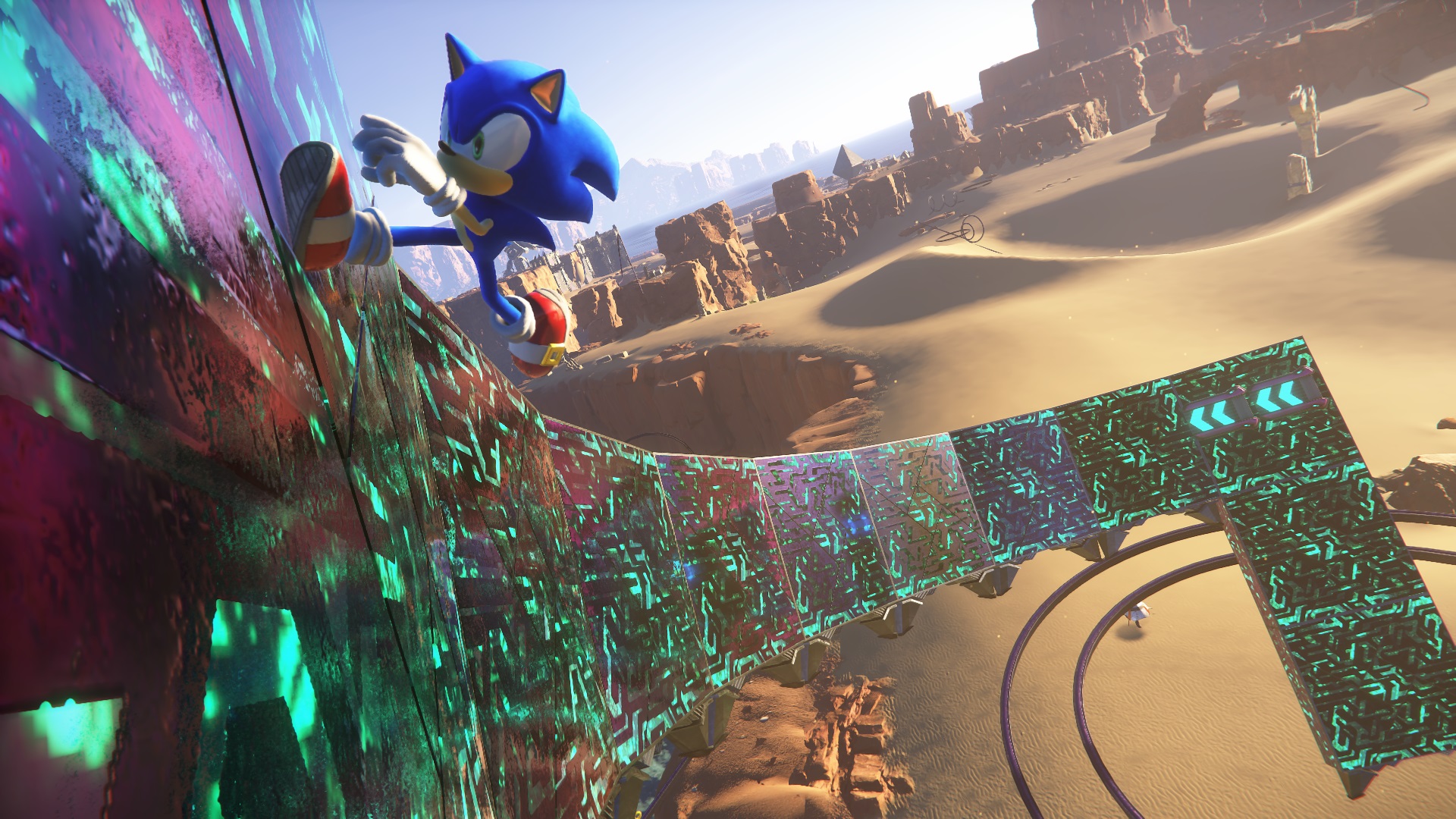
The islands offer a few different biomes, like plains, deserts, and mountains, and they are littered with enemies, from the smallest bots to massive titans. Sonic has a few speed-based attacks that can be comboed into more and more attacks, and for the big titan enemies, mech-spiders, and others, you first have to first figure out how to destroy them, and then execute your plan of attack. After just a few hours, Sonic starts feeling more powerful than ever, with a varied skill set that makes combat highly enjoyable.
One early enemy, called a squid, floats high above the island leaving a trail behind it that Sonic can traverse. These squids zoom faster and faster, and Sonic has to use his boost ability to keep pace until he can finally get close enough to attack. All the while, a squid shoots lines of bullets at the hedgehog, which have to be avoided as you sprint along its trail. It’s a thrilling and often times frustrating experience, but finally destroying the Squid felt amazing, as it triggered a wondrously beautiful scene that paid off in spades.
Defeating enemies will net you hearts, bytes, seeds, and more, all of which have their own purpose as Sonic Frontiers goes on. I feel like I could spend several paragraphs just trying to explain all the collectibles on offer and what they do, but it’s actually better if you experience it all for yourself. Sonic also learns new moves as the game progresses, with each skill opening up additional ways to solve map puzzles, destroy enemies, or unlock ancient ruins.
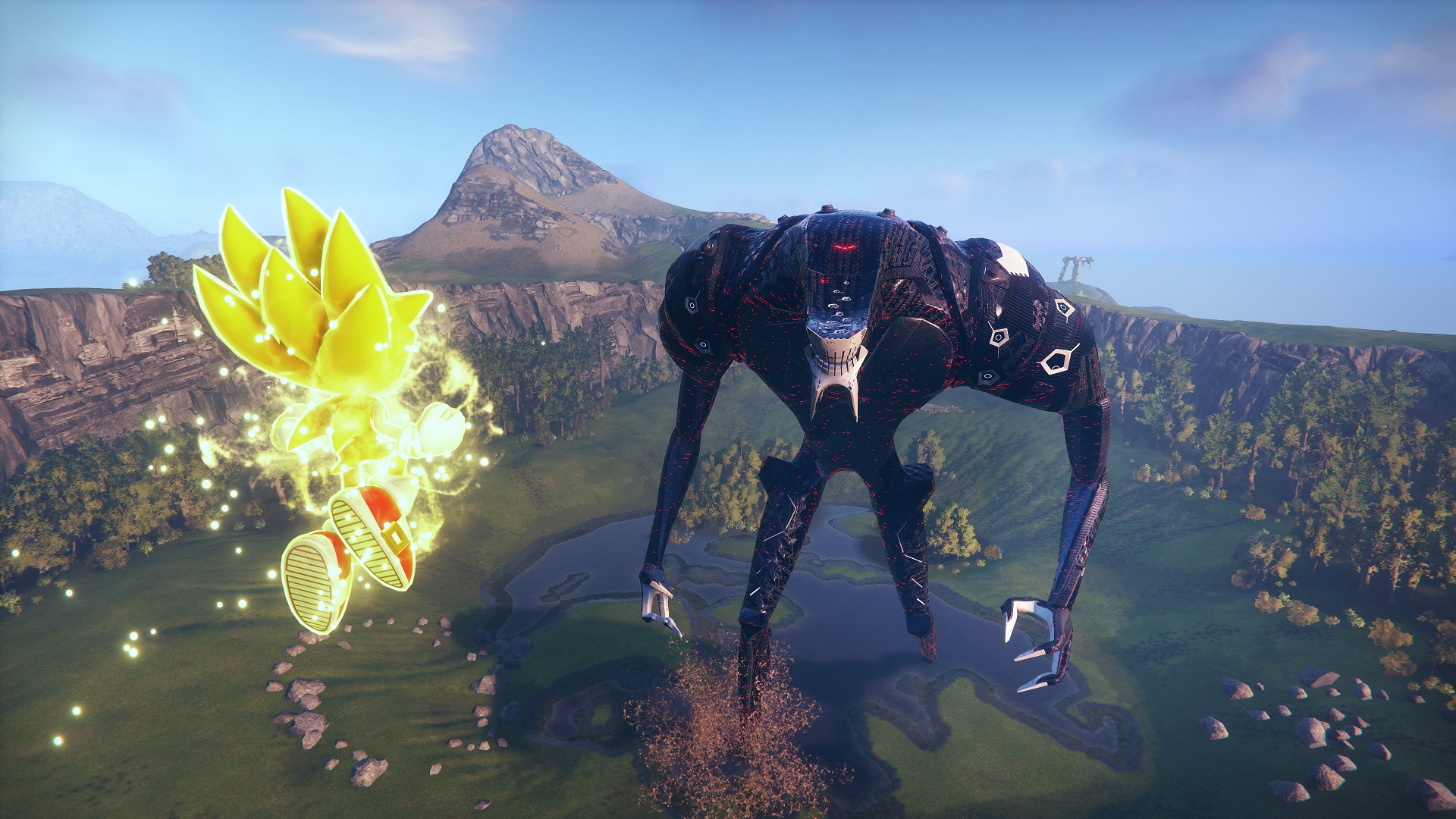
The five islands are absolutely stacked with speed boosts, bounce pads, rails to grind, and floating islands, not to mention rings, rings, and even more rings. The lack of a cohesive narrative in the early hours all but demands players to explore every nook and cranny looking for the ancient ruins that can be activated for either Chaos Emeralds or more straightforward, linear levels, calling back to the origins of the franchise. These journeys into “cyberspace” have Sonic speeding through levels collecting red coins, rings, and defeating enemies, all while trying to do it as fast as possible. The stages come in both third-person and side-scrolling flavors and serve as fun nods to the very foundations of Sega’s greatest character. Satisfying objectives in these cyberspace levels reward you with keys that can be used to unlock ruins that hold Chaos Emeralds, so mastering these speed-focused stages pays off in more ways than one.
Over time, the game’s map is also slowly revealed as Sonic tracks down specific landmarks and solves a short puzzle to activate them, which in turn reveals more of the islands’ key locations — it’s a unique way to drive the exploration elements forward. There are also plenty of fun distractions, including a fishing mini-game that Sonic can partake in with Big the Cat to earn valuable items to aid in the greater journey.
It takes about four hours before the greater narrative begins to kick in — this is when a mysterious girl makes her first appearance, angry that Sonic and friends have disrupted not only their world, but the greater world in general, and there are some twists and turns that eventually come to pass over the 35 to 40-hour adventure. I’m purposefully being vague here, as Sonic Frontiers is best enjoyed as your own journey unfolds.
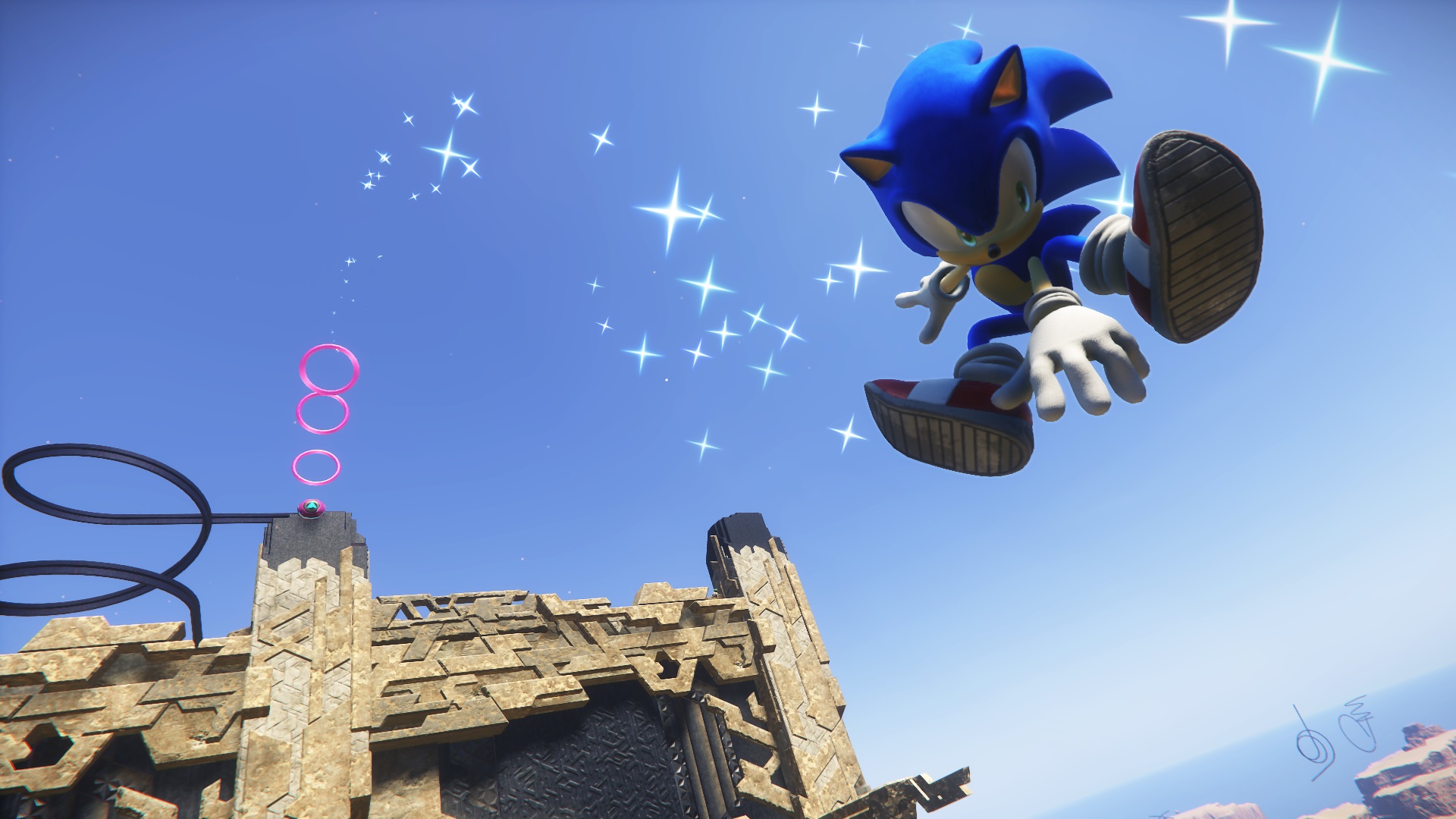
In another nod to Elden Ring, Sonic Frontiers‘ music is more somber and mysterious than the usual upbeat tunes long-time fans have become accustomed to. The soundtrack adds to the atmosphere and I dare say makes all of the time spent exploring feel epic — and relaxing. It’s all too easy to spend hours just wandering around, finding new map challenges and ways to access higher regions, all while trying to find Sonic’s friends and restore them.
Sonic Team has delivered the best-looking Sonic game ever — it’s not even close. Character models are smooth and highly detailed. The various islands are stunning, with weather elements coming into play along with a day/night cycle that often plays a role in certain map puzzles. The enemies and ancient ruins have a cool aesthetic that hints at something more tech-oriented, which also explains why Dr. Robotnik is so interested in them. And as soon as one island’s biome becomes too familiar, it’s on to the next. It’s a good balance that kept me wanting to play more and more.
I’ve truly appreciated how Sonic Frontiers lets me play at my own pace without pushing me in any particular direction, or by shoving its story onto me, letting me experience the journey on my terms. I put 300 hours and five months of my life into Elden Ring and I’d jump at the chance to sink that much time into a game like Sonic Frontiers. I’ve not had this much fun playing a Sonic game since 1999, and the bold, ambitious choices Sonic Team made on this project have paid off in so many ways. I may be in the minority here, but Sonic Frontiers is the best Sonic game I’ve ever played, and I say that as a massive fan of Sonic Adventure. My year opened with the massive experience that was Elden Ring, and it’ll end with an equally massive adventure here. I can’t wait to see where this franchise goes next.
This review is based on the PlayStation 5 version of the game. A copy was provided to us by Sega.

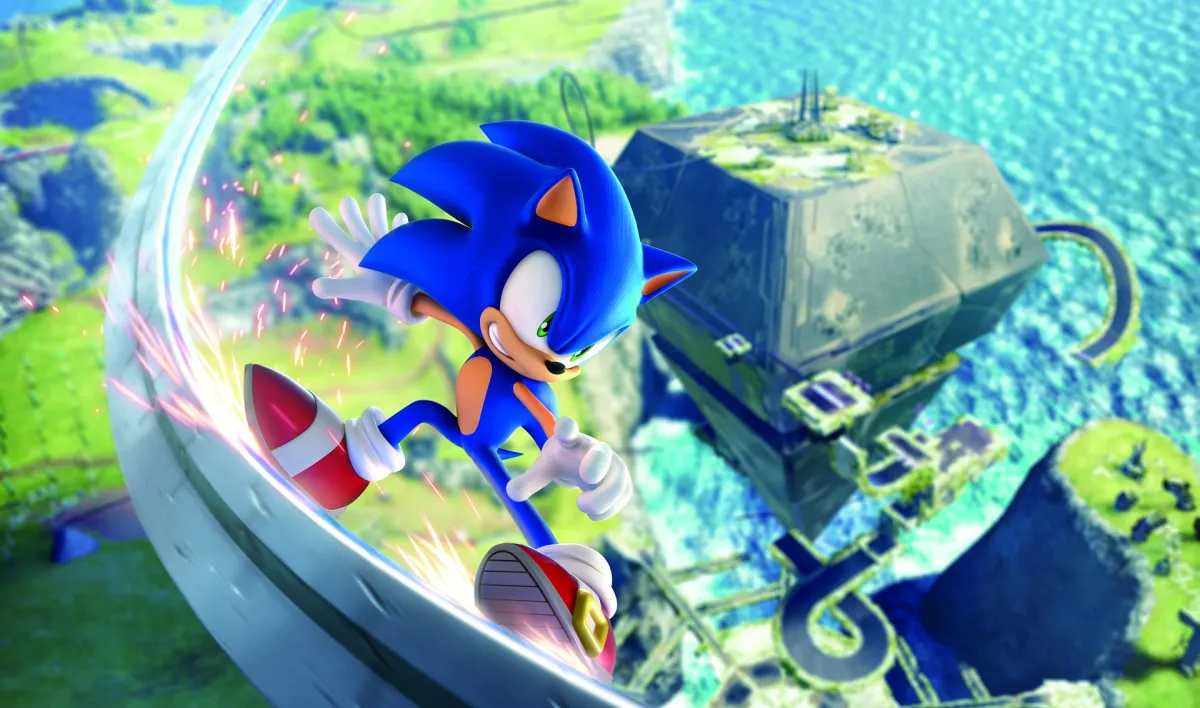

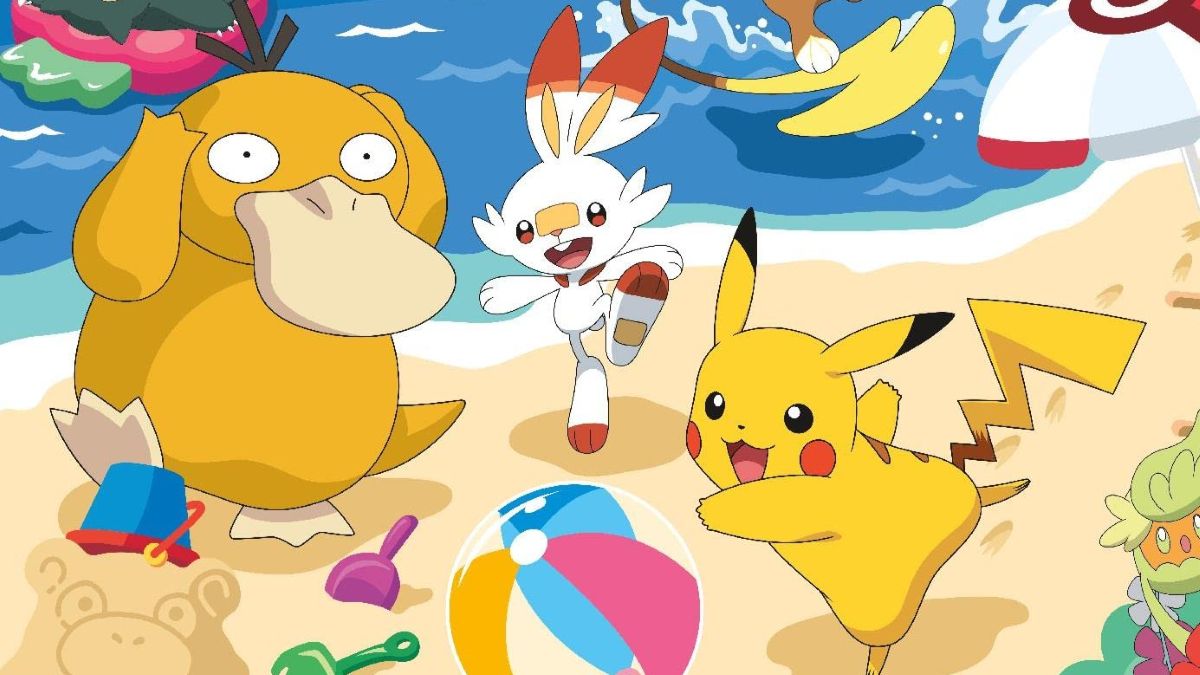






Published: Nov 7, 2022 09:00 am